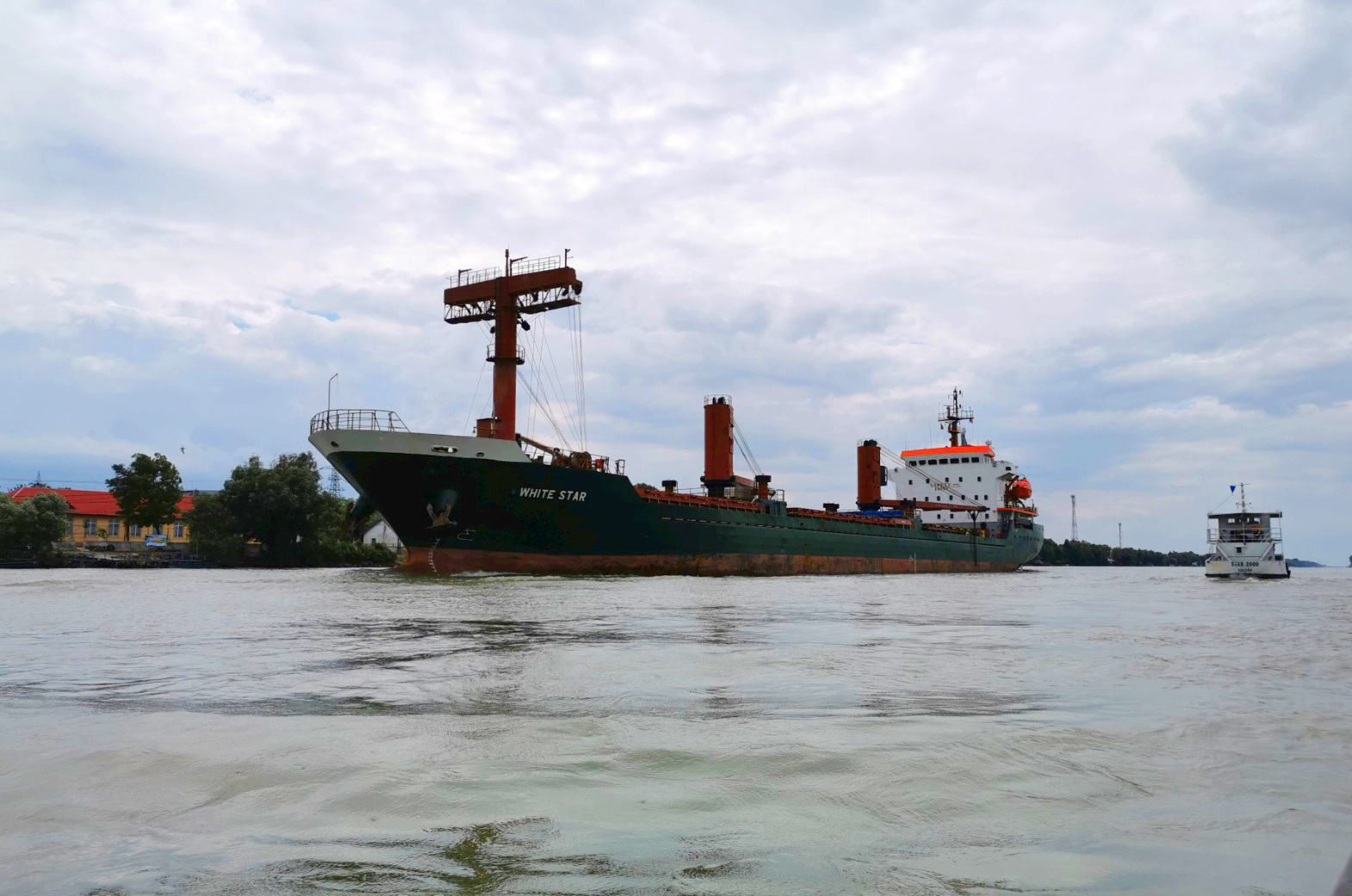
Russia’s termination of the agreement allowing the safe export of Ukrainian grain through Black Sea ports is raising concerns in Kiev, for which these exports were a serious source of revenue, but also globally, with many developing countries, particularly African states, dependent on these imports.
An agreement reached last July, helped alleviate the food crisis caused by the Russian-Ukrainian war, making it easier for more than 30 million tonnes of Ukrainian grain to reach European countries safely over the past ten months. The announcement of Russia’s exit from the agreement confirmed the gloomy estimates, leading, on the very day it was publicly released, to an increase in wheat prices on international markets. Now Ukraine is asking for solutions, and one possibility is for Romania and Bulgaria to guarantee a secure corridor through their territorial waters. Although he has not yet officially responded to the request, Romania’s president has already assured Kiev that he will continue to support Ukrainian grain exports.
The Black Sea Grain Initiative, the agreement brokered by the UN and Turkey in Istanbul last July, helps Ukraine export its grain across the Black Sea from three ports – Odessa, Chornomorsk and Pivdenny – using a secure corridor to the Bosphorus Strait. The agreement was terminated by the Russian side just before the last deadline expired, and the deal was renewed in March for just two more months, despite the insistence of mediators who called for a longer term. Russia has repeatedly accused the agreement on Ukrainian grain exports of failing to respect the component of the deal that provides for the facilitation of Russian grain and fertiliser exports, indirectly hampered by the effect of Western financial sanctions against it. The aim of the deal, Moscow argued, was to help poor countries in need of grain. In reality, however, the biggest importers of Ukrainian grain remain European countries (Spain, Italy and the Netherlands), which provide Kiev with significant financial resources.
“Unfortunately, the part of the Black Sea agreements concerning Russia has not been implemented so far. Therefore, its agreement has been terminated. As soon as the Russian side is finalised, Russia will immediately return to the implementation of this agreement,” Kremlin spokesman Dmitry Peskov pointed out.
The termination of the agreement came shortly after the bridge at Kerch, linking mainland Russia to occupied Crimea, was blown up. Asked whether Russia’s decision to pull out of the agreement had anything to do with the attack on the Kerch bridge, Peskov denied it.
“These are unrelated events. Even before this terrorist attack, the position was stated by President Putin. And I repeat again, as soon as the part of the Black Sea agreements that concerns Russia is fulfilled, Russia will immediately return to the implementation of the agreement,” Dmitry Peskov said.
On the day the suspension of the agreement was announced, Ukrainian President Volodimir Zelenski announced that he would continue to use the Black Sea grain route because “he is not afraid”.
“Even without the Russian Federation, everything must be done to use this Black Sea corridor. We are not afraid,” spokesman Serhii Nikiforov quoted Zelensky as saying.
Temporary routes for the transport of cereals through the territorial waters of Romania and Bulgaria
In an official letter from the Kiev government, seen by Reuters, it is stated that Ukraine is currently working on establishing a temporary transport route through the territorial waters of Romania.
“Russia, after withdrawing from the agreement, has stated that it does not guarantee security. And that means they will fire on ports, infrastructure and possibly ships. This is the risk,” Ambassador Vasil Bodnar told Ukraine’s Suspilne public television, according to News.ro.
The Ukrainian diplomat explained that these threats will affect shipping companies and insurance companies in particular. In this context the insurance value of ships will certainly increase. At the same time, according to Bodnar, Ukraine has created a fund to guarantee these risks.
“We also have opportunities to attract ships and companies that are ready to supply these ships to transport grain. From our point of view, this can be implemented even without using this route which has already been agreed, but through the territorial waters of Romania and Bulgaria. It is also a possible risk minimisation option,” the ambassador said.
Ukraine the third source of EU agri-food imports
Ukraine became the third largest source of EU agri-food imports in 2022, with an increase of 88% compared to 2021, even overtaking European imports from the US. The massive imports of Ukrainian grain, duty-free from May 2022, have sparked discontent among farmers in neighbouring countries, including Romania. According to estimates by the League of Agricultural Producers’ Association, Romanian farmers alone have lost more than €2.6m because of Ukrainian products sold below market prices and often of dubious quality. What’s more, a large proportion of the agri-food products imported by the EU from Ukraine have been found to be of poor quality after quality controls in terms of the quantities of pesticides used. The head of the association, Vasile Nica, told Digi 24 that many of the agricultural products coming from Ukraine are genetically modified and therefore have no place on the EU market. Although destined for developing countries (especially those in Africa), Ukrainian cereals have mostly remained in Europe. This was confirmed by statistics on the flow of grain through the port of Constanta last year. With a storage capacity of around two million tonnes, it brokered 24 million tonnes of grain exports last year, most of which ended up in EU countries.

But official European statistics claim that 64% of the wheat exported through the Black Sea Grains Initiative has reached developing countries. But wheat accounted for only 28% of total exports. Half of the Ukrainian grain exported was maize, 11% sunflower products and the rest, was represented by other grain products. The United Nations World Food Programme (WFP – the world’s largest humanitarian organisation) also ships wheat from Black Sea ports. Before the war, the programme bought half of its grain stock in Ukraine. Since the start of the initiative in August 2022, more than 625 000 tonnes of wheat have left Ukrainian ports for Ethiopia, Yemen, Afghanistan, Sudan, Somalia, Kenya and Djibouti.
The shortage of Ukrainian and Russian grain, which also supplied pre-war markets in Europe, Asia and Africa, will predictably lead to significant price increases. On the day of the announcement of the suspension of the Istanbul agreement, wheat futures on the Chicago Grain Exchange climbed 3.4% to $6.84 per bushel (about 27 kilograms), after earlier rising more than 4%, traders said, as quoted by Reuters. Russia’s announcement to tear up the agreement allowing Ukrainian grain exports from the Black Sea will lead to worsening food shortages, the White House reacted, according to Reuters.
“Russia’s decision to suspend participation in the Black Sea Grains Initiative will worsen food insecurity and affect millions of vulnerable people around the world. The initiative has been critical to lowering food prices around the world, which have risen as a result of Russia’s brutal and unprovoked invasion of Ukraine,” Adam Hodge, spokesman for the National Security Council, said in a statement.
Russia’s decision to tear up the agreement that allowed the safe export of Ukrainian grain to the Black Sea is an “act of cruelty,” US Ambassador to the UN Linda Thomas-Greenfield said on Monday, as quoted by Reuters.
“Russia has dealt another blow to the world’s most vulnerable, this time by suspending its participation in the Black Sea grain initiative. This is truly another act of cruelty,” said Linda Thomas-Greenfield.
President Klaus Iohannis, on a visit to Brussels, described as “regrettable” Russia’s decision to break the agreement on Ukrainian grain exports.
“Half of the Ukrainian grain was exported through Romania, we have adapted and improved the routes and will continue to do so. We think it is important and good to be on Ukraine’s side and to support these exports to prevent any syncope,” Iohannis said, asked about the consequences that Russia’s decision could have for Romania.
The certainty is that Romania imported more than 20 times more Ukrainian agri-food products in 2022 than in 2021, according to official data from the National Institute of Statistics.



 Subscribe
Subscribe